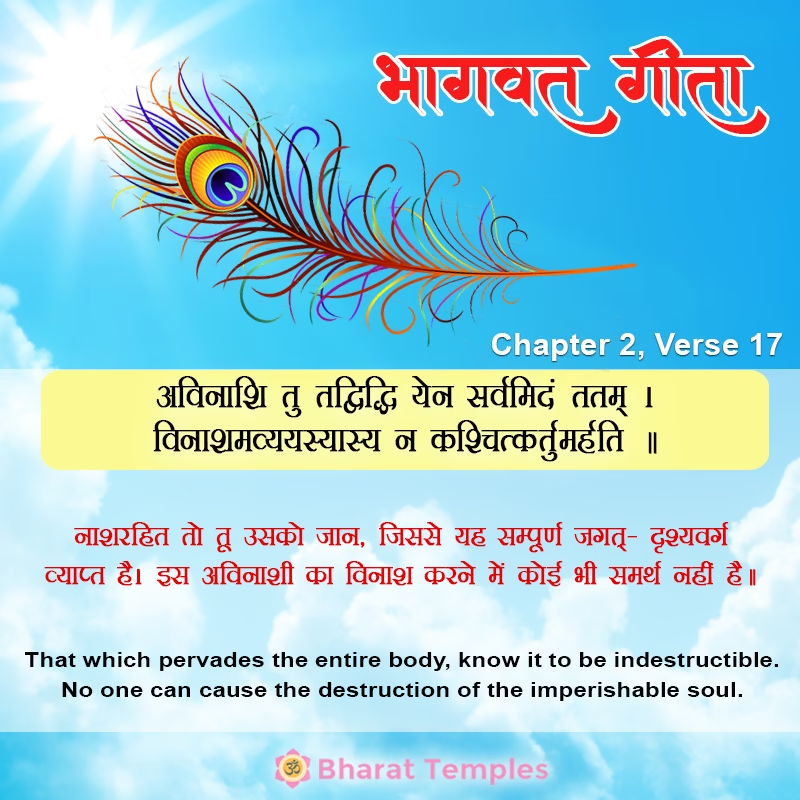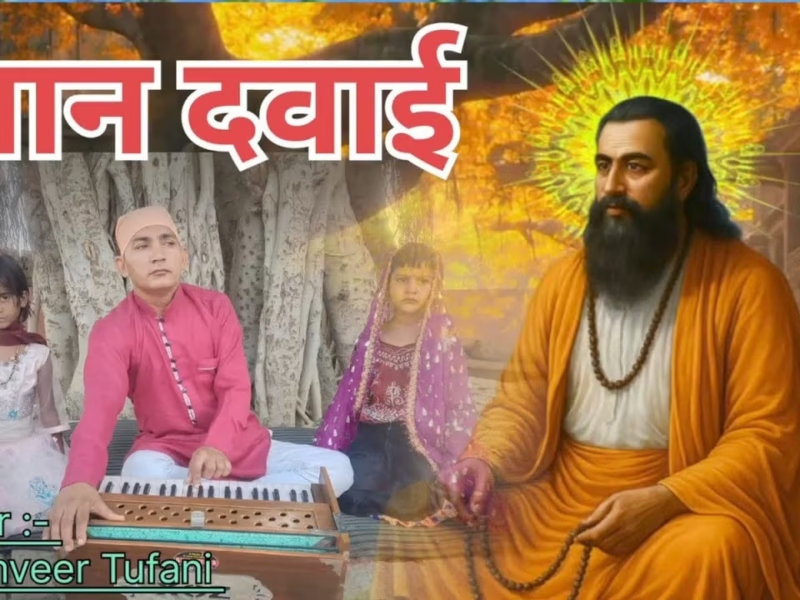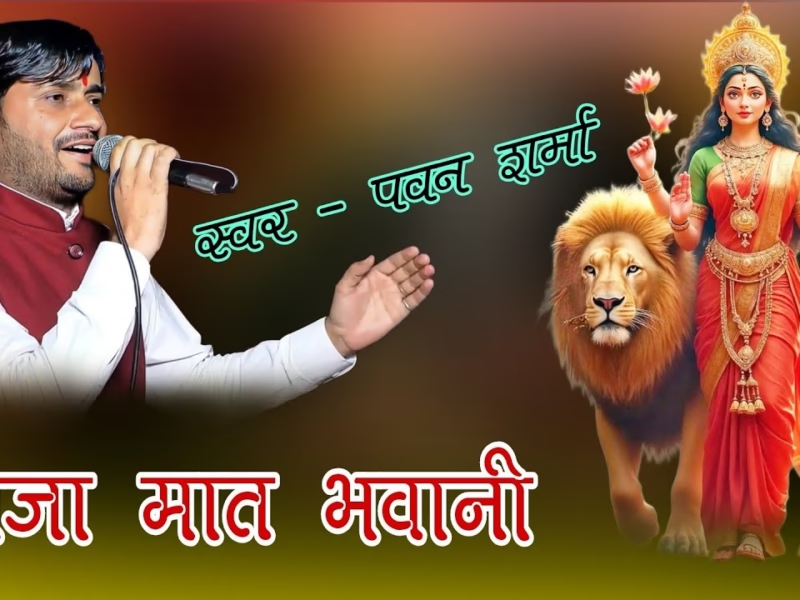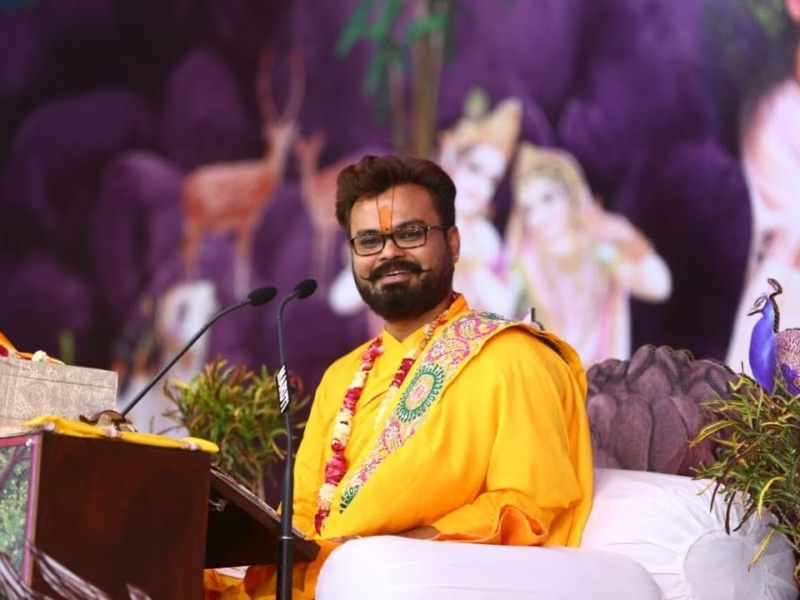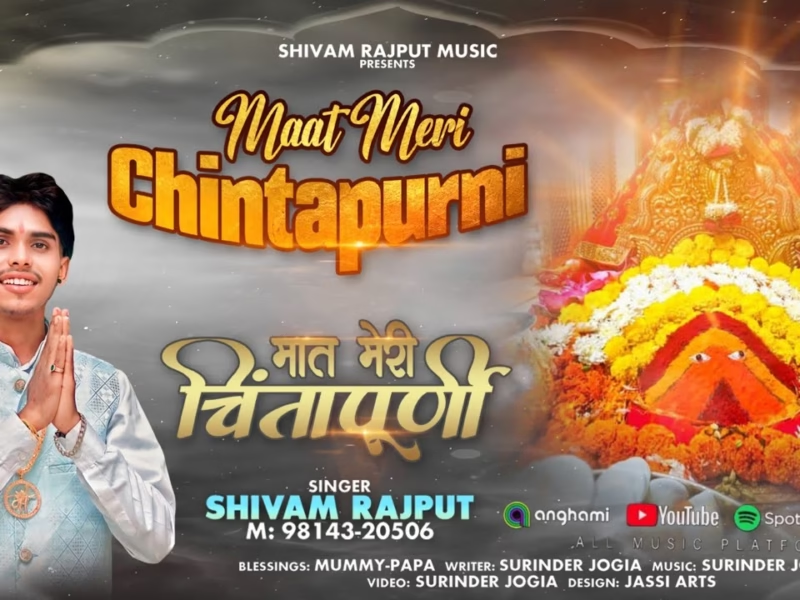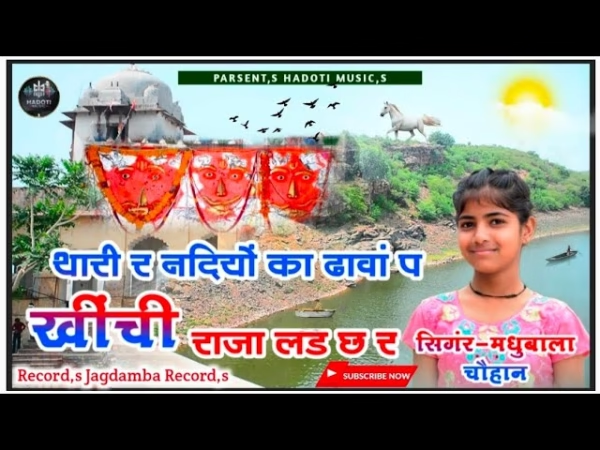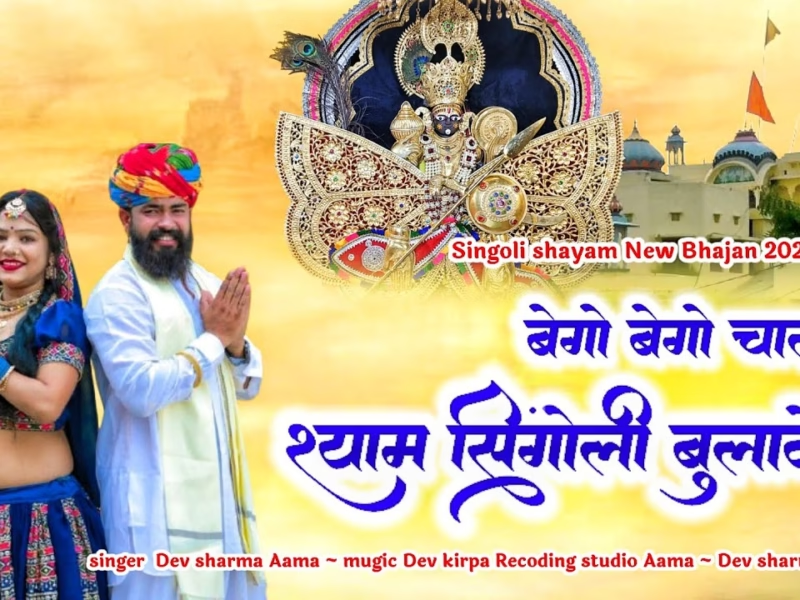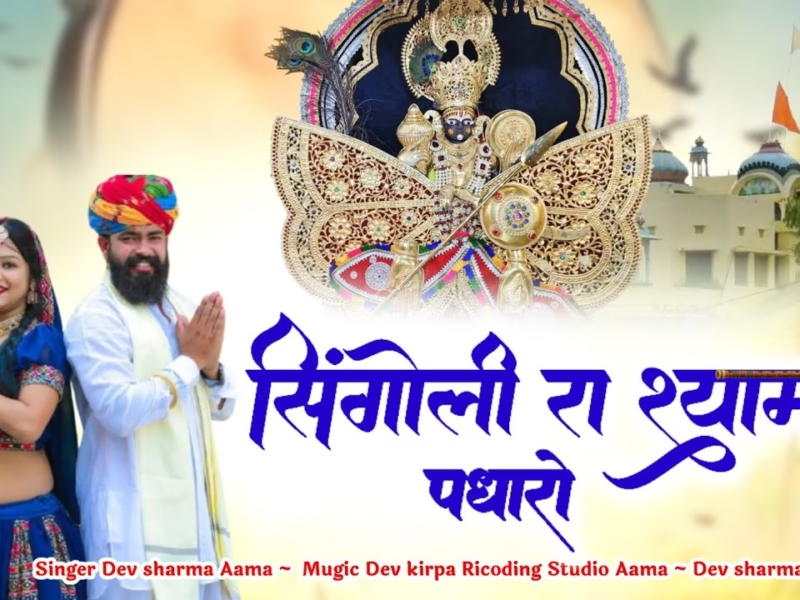Contents
Chapter 2, Verse 17
अविनाशि तु तद्विद्धि येन सर्वमिदं ततम् |
विनाशमव्ययस्यास्य न कश्चित्कर्तुमर्हति || 2.17 ||
avināśhi tu tadviddhi yena sarvam idaṁ tatam
vināśham avyayasyāsya na kaśhchit kartum arhati
भावार्थ:
नाशरहित तो तू उसको जान, जिससे यह सम्पूर्ण जगत्- दृश्यवर्ग व्याप्त है। इस अविनाशी का विनाश करने में कोई भी समर्थ नहीं है॥17॥
Translation
That which pervades the entire body, know it to be indestructible. No one can cause the destruction of the imperishable soul.
English Translation Of Sri Shankaracharya’s Sanskrit Commentary By Swami Gambirananda
2.17 Tu, but this word is used for distinguishing (reality) from unreality; tat viddhi, know That; to be avinasi, indestructible, by nature not subject to destruction; what? (that) yena, by which, by which Brahman called Reality; sarvam, all; idam, this, the Universe together with space; is tatam, pervaded, as pot etc. are pervaded by space. Na kascit, none; arhati, can; kartum, bring about; vinasam, the destruction, disappearance, nonexistence; asya, of this avyayasya, of the Immutable, that which does not undergo growth and depletion. By Its very nature this Brahman called Reality does not suffer mutation, because, unlike bodies etc., It has no limbs; nor (does It suffer mutation) by (loss of something) belonging to It, because It has nothing that is Its own. Brahman surely does not suffer loss like Devadatta suffering from loss of wealth. Therefore no one can bring about the destruction of this immutable Brahman. No one, not even God Himself, can destroy his own Self, because the Self is Brahman. Besides, action with regard to one’s Self is self-contradictory.
Which, again, is that ‘unreal’ that is said to change its own nature? This is being answered:
Explanation in English:
Krishna now tells Arjuna about the true nature of the Self (Atman) — the indestructible spiritual essence that resides in all beings.
1. “Avināśi tu tad viddhi” – “Know that to be imperishable”
The soul (ātman) — the eternal Self — is never destroyed. It is avināśi (indestructible).
2. “Yena sarvam idaṁ tatam” – “By which all this is pervaded”
This Self is not limited to a body; it pervades all of existence. Just as air fills space, the Self is present in every being — it is universal consciousness.
3. “Vināśam avyayasya asya” – “Destruction of this immutable cannot happen”
The Self is immutable (avyaya) — it does not decay, change, or end.
4. “Na kaścit kartum arhati” – “No one can cause its destruction”
No force in the universe — not time, weapons, fire, or death — can destroy the soul. It is eternal and untouchable.
Key Teaching:
Krishna is reminding Arjuna:
The true Self cannot be killed or harmed.
Even if the body dies, the Self remains untouched.
This verse is meant to remove Arjuna’s fear of death and killing in battle — because Krishna is teaching that what truly exists can never die.
Summary:
“The imperishable Self pervades all beings. No one can destroy this eternal soul.”
This foundational truth in Vedanta and the Gita teaches us to see beyond the physical form and realize the unchanging spiritual essence within.

